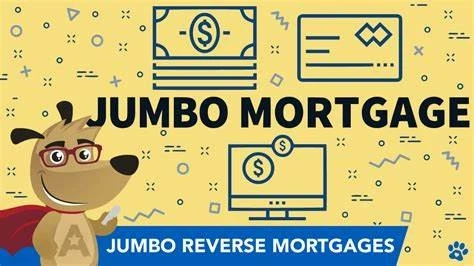A super jumbo reverse mortgage is a financial product designed for homeowners who have substantial equity in high-value properties. These loans exceed the limits of traditional reverse mortgages, making them suitable for properties with very high appraised values. Here’s a detailed exploration of the types of properties that typically qualify for a super jumbo reverse mortgage:
High-Value Homes:Super jumbo reverse mortgages are intended for homes that exceed the limits set by regular reverse mortgages. These properties often have appraised values significantly higher than the local median home prices.
Luxury Residences:Properties considered for super jumbo reverse mortgages include luxury homes, such as custom-built residences, high-end condominiums, or estates with extensive acreage and premium amenities.
Urban and Suburban Areas:Homes located in prime urban or suburban areas with high property values are commonly eligible. This includes homes in major metropolitan areas known for their upscale real estate markets.
Second Homes and Investment Properties:Some super jumbo reverse mortgage programs may consider second homes or investment properties, particularly if these properties have substantial equity and meet specific lending criteria.
Age of the Borrower:While the primary consideration is the value of the property, eligibility for a super jumbo reverse mortgage also depends on the age of the youngest borrower. Borrowers typically must be at least 60 or 62 years old, depending on the specific lender's requirements.
Property Requirements:Condition: The property must meet certain standards of livability and safety, similar to traditional mortgage requirements.Occupancy: Generally, the property must be the primary residence of the borrower, though some exceptions may exist for second homes or investment properties. Loan Limits and Requirements:Loan-to-Value Ratio: The loan amount is determined by factors including the age of the borrower, current interest rates, and the appraised value of the property.Financial Assessment: Lenders typically conduct a financial assessment to ensure the borrower has the ability to maintain property taxes, insurance, and other ongoing expenses. Financial Considerations:Equity Requirements: The borrower should have significant equity in the property, often with a considerable margin above the loan amount sought.Income and Credit History: While credit scores and income are not typically considered for eligibility, they may influence the terms and conditions of the loan. Legal and Regulatory Aspects:Compliance: Super jumbo reverse mortgages are subject to federal regulations, including those set by the Federal Housing Administration (FHA) and other agencies overseeing mortgage lending practices.Counseling: Borrowers are required to undergo counseling to ensure they understand the implications and obligations associated with a reverse mortgage. Market Variability:Interest Rates: The interest rates for super jumbo reverse mortgages may vary based on market conditions, lender policies, and the specific terms of the loan.In summary, super jumbo reverse mortgages cater to homeowners with substantial equity in high-value properties. Eligibility is primarily based on the property's appraised value and the age of the borrower, with additional considerations for property condition, financial stability, and compliance with regulatory standards. These mortgages provide an option for accessing the equity tied up in luxury homes, allowing older homeowners to supplement retirement income or meet other financial needs while continuing to live in their homes.
Do I still own my home with a super jumbo reverse mortgage?
With a super jumbo reverse mortgage, you retain ownership of your home throughout the duration of the loan. Here’s a detailed explanation of how ownership works with this type of mortgage:
Ownership Structure
Title and Ownership:Legal Ownership: When you take out a super jumbo reverse mortgage, you continue to hold the title to your home. The lender places a lien against the property, similar to a traditional mortgage, but you remain the homeowner.Property Rights: As the homeowner, you retain all rights associated with property ownership, including the ability to live in the home, make modifications (subject to lender approval), and sell the property (with repayment of the loan balance).Loan Repayment Responsibility:Accumulation of Debt: The loan balance increases over time as interest accrues and any applicable fees are added. This amount does not need to be repaid until you no longer live in the home as your primary residence or fail to meet other loan obligations (such as maintaining property taxes and insurance).Non-Recourse Loan: Super jumbo reverse mortgages are typically non-recourse loans, which means the lender can only claim repayment from the proceeds of the sale of the property. If the loan balance exceeds the home's value at the time of sale, the FHA insurance (if the loan is FHA-insured) covers the shortfall, and no other assets are affected.Ongoing Ownership Responsibilities:Maintenance: You are responsible for maintaining the property and paying property taxes, homeowners insurance, and any homeowners association fees (if applicable).Residency Requirement: To maintain the loan terms, you must continue to reside in the home as your primary residence. Temporary absences, such as for medical reasons, are generally permitted.Benefits and Considerations
Ownership Benefits: By retaining ownership, you can continue to benefit from any appreciation in the home's value. This can be advantageous in high-value real estate markets where property values tend to increase over time.Estate Planning: Upon your passing, your heirs have options regarding the home. They can choose to sell the property and use the proceeds to repay the loan balance, or they can refinance the loan to retain ownership if they wish to keep the home.Financial Flexibility: The funds received from a super jumbo reverse mortgage can provide financial flexibility for various purposes, such as supplementing retirement income, covering healthcare expenses, or making home improvements.In essence, a super jumbo reverse mortgage allows you to maintain ownership of your home while accessing the equity built up in the property. This type of loan provides financial flexibility without requiring immediate repayment, giving you the ability to stay in your home and meet your financial needs throughout your retirement years. It's essential to carefully review the terms and conditions of the loan, including any obligations regarding property maintenance and residency, to ensure you can continue enjoying the benefits of homeownership while utilizing the equity in your home.



